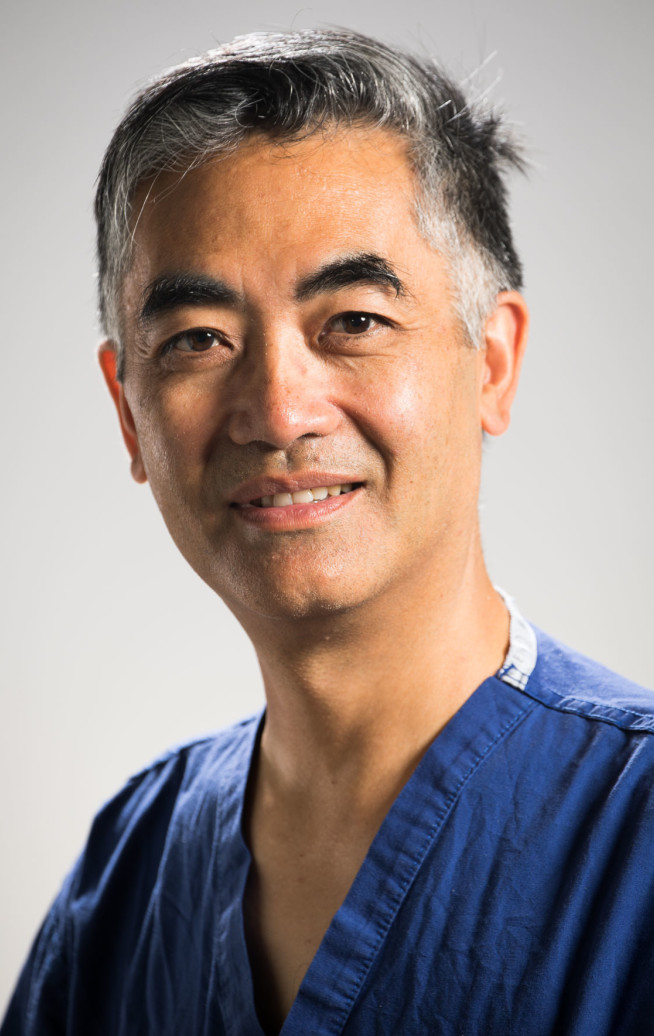
Norbert Venantius Kang completed his MBBS in 1989 at Charing Cross and Westminster Medical School, the oldest of the constituent medical schools of the Imperial College School of Medicine. During his time studying, Norbert took part in rowing and the light operatic society.
Norbert is the co-founder of the Relimb service at the Royal Free Hospital: a reconstructive service to treat amputees.
We spoke to Norbert about the path from his studies to his remarkable career.
Can you tell us about your time at medical school?
I enjoyed all of my studies, especially once I got to the clinical years and started to understand what all the preclinical knowledge was for. I actually enjoyed being able to spend time learning my preclinical subjects really well without the distraction of clinical patients. It gave me a really firm basis for the clinical phase, and I don’t think I would have enjoyed an integrated course with early introduction to patients quite as much.
What did you learn during your time at medical school, in class or out?
I learnt that there are lots of different paths to the same outcome, but some are easier than others. I also learnt the importance of time management and the need to ensure that there is always time for extracurricular activities. Finally, I learnt the need to be true to yourself and not to feel compelled to follow the herd.
What is your fondest memory of your time here?
Rowing on the Thames, early on a Saturday morning in the summer with the mist rising from the river and the sound of the blades dipping in and out of the water. Magic!
Can you tell us a bit about the work you’re doing now?
I am a consultant plastic surgeon at the Royal Free Hospital with a special interest in hand surgery, amputee reconstruction and hypospadias surgery. Take a look at Norbert's professional profile on the Royal Free Hospital's website.
How has what you learnt at Imperial helped you in your career so far?
Everything I learnt at medical school has proved to be useful at some point in my career. I am constantly surprised by how much of what I learnt appears to have stuck and is able to resurface when needed.
What have been your career highlights?
My highlights would be passing the FRCS (Fellowship of the Royal Colleges of Surgeons) parts 1, 2 and 3 first time, as well as getting my preferred consultant post. Another would be pushing a medical device through from the drawing board to commercial reality.
And of course, setting up the Relimb service at the Royal Free. Read an article praising the Relimb service.
What does a typical day look like for you now?
Although I have a weekly timetable which governs where I need to be every day, what actually happens on each of those days is very varied. I really do not have a typical day.
What are your plans for the future?
To push for more widespread acceptance of bone-anchor surgery as a treatment for amputees.
What would your advice be for current students at Imperial?
Enjoy your time at medical school and don’t restrict your horizons to just academic pursuits. Do it all! You never get the time back.
What makes you proud to be an alumnus?
Being a graduate of an institution that has made and is continuing to make such a difference to the quality of life of millions through the application of scientific knowledge.
What one word or phrase would you use to describe Imperial alumni?
Sparkly and special.
Do you have a favourite quote or saying?
There are three types of people in life. Those who talk, those who walk and those who do both. Which one are you?
Is there anything else you’d like to share?
Always question dogma. If what you do doesn’t have a firm evidence base, then it is just belief and it may be wrong. If you got into Imperial, you are special but that means you also have a special responsibility to share your skills and knowledge with others.
What makes Norbert proud to be an Imperial alumnus...
"Being a graduate of an institution that has made and is continuing to make such a difference to the quality of life of millions through the application of scientific knowledge"